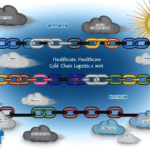Explore the profound effects of COVID-19 on the healthcare sector, highlighting challenges and transformations.
Understanding The Impact of COVID-19 On Healthcare Industry
Table of Contents
Understanding The Impact of COVID-19 On Healthcare Industry
The COVID-19 pandemic has been a watershed event for the global healthcare industry, reshaping it in profound ways. From the rapid acceleration of telemedicine to the strain on healthcare systems and the innovation in vaccine development, the effects have been both challenging and transformative. This article explores the multifaceted impacts of the pandemic on the healthcare sector, providing insights through relevant examples, case studies, and statistics.
Strain on Healthcare Systems
The sudden surge in COVID-19 cases during the early months of the pandemic placed unprecedented pressure on healthcare systems around the world. Hospitals faced severe shortages of beds, ventilators, and other critical resources. Healthcare workers experienced immense workloads, leading to burnout and even mental health crises among medical professionals.
- Resource Allocation: Many hospitals had to postpone elective surgeries and other non-critical healthcare services to prioritize COVID-19 patients, which had long-term effects on patient care and hospital revenues.
- Protective Measures: The need for personal protective equipment (PPE) soared, creating shortages and necessitating rapid innovation and supply chain adjustments.
Acceleration of Telemedicine
One of the most significant shifts induced by the pandemic has been the widespread adoption of telemedicine. Social distancing measures and the risk of infection made traditional face-to-face consultations risky, propelling telehealth to the forefront as a safe and effective alternative.
- Technology Integration: Many healthcare providers rapidly integrated video conferencing tools and digital health records to facilitate telemedicine.
- Regulatory Changes: Governments temporarily relaxed regulations around telemedicine, allowing more healthcare providers to offer these services across state lines and internationally.
Innovation in Vaccine Development
The development of COVID-19 vaccines has been unprecedented in its speed and scale, highlighting a remarkable period of scientific innovation. Pharmaceutical companies like Pfizer-BioNTech, Moderna, and AstraZeneca leveraged new technologies such as mRNA to develop vaccines in record time.
- Collaborative Efforts: Global collaboration among governments, private companies, and international health organizations facilitated the rapid development and distribution of vaccines.
- Emergency Use Authorization: Regulatory bodies expedited the review process for COVID-19 vaccines, granting emergency use authorizations to speed up public access.
Impact on Mental Health
The pandemic has had a profound impact on the mental health of both healthcare professionals and the general public. The fear of infection, the stress of lockdowns, and the grief over lost loved ones have contributed to a widespread mental health crisis.
- Healthcare Workers: Many healthcare workers have faced long hours, patient deaths, and fear of bringing the virus home to their families, leading to increased reports of anxiety, depression, and burnout.
- Public Mental Health: The general populace has experienced isolation and economic hardships, exacerbating pre-existing mental health conditions and leading to an increase in substance abuse and domestic violence.
Case Studies and Examples
Case Study: Telemedicine in Rural America
In rural areas of the United States, where access to healthcare has always been a challenge, telemedicine has been a game-changer during the pandemic. Clinics have reported a significant increase in the use of telehealth services, which has allowed patients to access critical healthcare services without the need to travel long distances.
Example: Vaccine Rollout in Israel
Israel’s rapid vaccine rollout is a prime example of effective pandemic management. By securing a large supply of vaccine doses early on and efficiently distributing them through its centralized healthcare system, Israel quickly became a world leader in vaccination rates.
Conclusion: Key Takeaways
The COVID-19 pandemic has undeniably transformed the healthcare industry in numerous ways. The strain on healthcare systems highlighted the need for better preparedness and resilience in facing future health crises. The acceleration of telemedicine has democratized access to healthcare, making it more accessible to those in remote or underserved regions. The rapid development and deployment of vaccines have showcased the potential of global scientific collaboration and innovation. Finally, the mental health crisis induced by the pandemic has underscored the need for comprehensive mental health services and support systems.
As we move forward, it is crucial for healthcare systems, policymakers, and healthcare providers to take the lessons learned from this pandemic to build a more robust and equitable global healthcare system.








